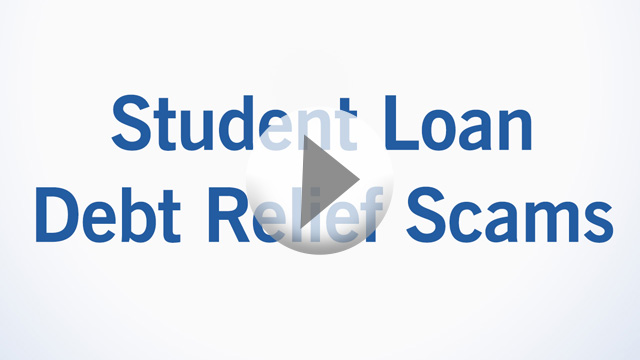If you have student loan debt, a program that promises to reduce or erase it might sound like just what you need. But some of these programs just take lots of your money and give you no help — or do only what you could have done easily by yourself.
In two just-filed lawsuits the FTC says that Student Advocates Team (SAT) and Manhattan Beach Venture (MBV) ran these kinds of illegal debt relief schemes. They allegedly charged people between $1,300 and $1,800 in fees and often steered them into taking out high-interest, multi-year loans from a finance company (Defendant Equitable Acceptance Corporation) to pay those fees. According to the lawsuits, SAT and MBV deceptively claimed they would get their customers’ loan payments permanently reduced or forgiven. They also misled people into believing that some or all of the fees would be used to pay off their student loans. Instead, SAT, MBV, and the finance company kept the fees.
You don’t have to pay for help with your student loans. There’s nothing a company can do for you that you can’t do yourself, for free. If you’re a federal borrower, start with StudentAid.gov/repay. If you’re a private borrower, start by talking with your loan servicer.
Here are some tips to avoid scams:
- Never pay an up-front fee for help with your debts. It’s illegal, so steer clear of companies that ask for one.
- Only scammers promise fast loan forgiveness. These promises – made before they even know your situation – are always false.
- A Department of Education seal doesn’t mean it’s legit. Scammers use official-looking names and logos and lie about having special access to certain federal programs.
- Don’t share your FSA ID with anyone. Scammers could use it to get into your account and take control of your personal information.
Spotted a student loan relief scam? Let us know about it. And for more resources on student loans, check out ftc.gov/StudentLoans.


It is your choice whether to submit a comment. If you do, you must create a user name, or we will not post your comment. The Federal Trade Commission Act authorizes this information collection for purposes of managing online comments. Comments and user names are part of the Federal Trade Commission’s (FTC) public records system, and user names also are part of the FTC’s computer user records system. We may routinely use these records as described in the FTC’s Privacy Act system notices. For more information on how the FTC handles information that we collect, please read our privacy policy.
The purpose of this blog and its comments section is to inform readers about Federal Trade Commission activity, and share information to help them avoid, report, and recover from fraud, scams, and bad business practices. Your thoughts, ideas, and concerns are welcome, and we encourage comments. But keep in mind, this is a moderated blog. We review all comments before they are posted, and we won’t post comments that don’t comply with our commenting policy. We expect commenters to treat each other and the blog writers with respect.
We don't edit comments to remove objectionable content, so please ensure that your comment contains none of the above. The comments posted on this blog become part of the public domain. To protect your privacy and the privacy of other people, please do not include personal information. Opinions in comments that appear in this blog belong to the individuals who expressed them. They do not belong to or represent views of the Federal Trade Commission.